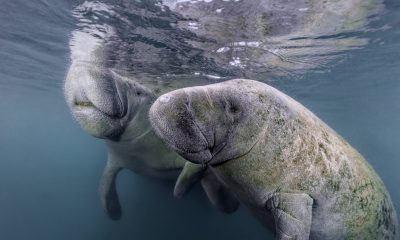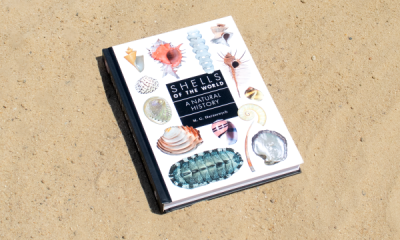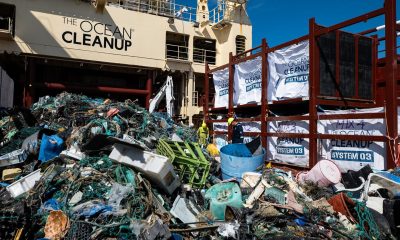Marine Life & Conservation
Silent Reef Keepers: The Fight to Save the Caribbean Reef Shark
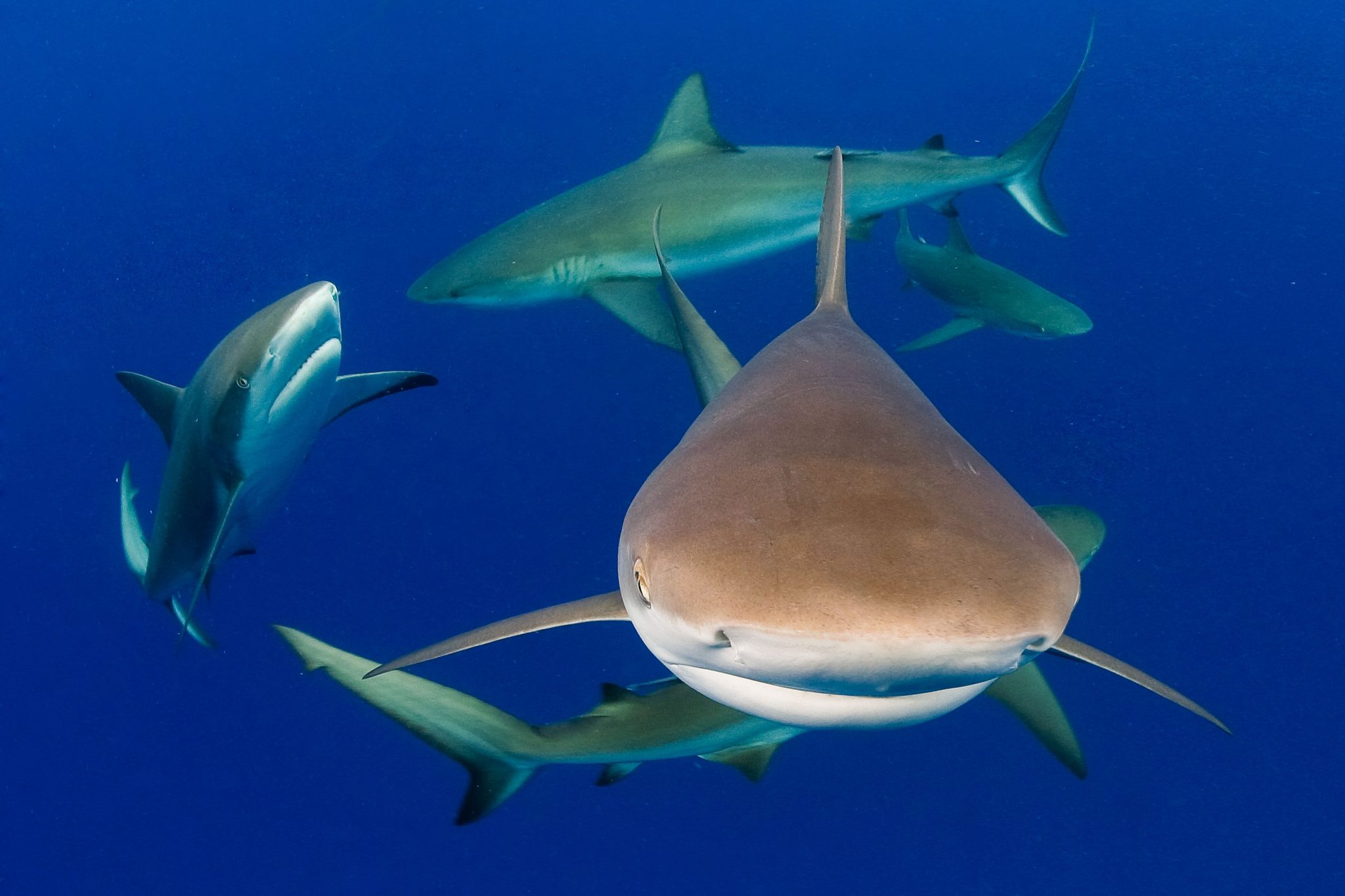
The Kingdom of the Netherlands will ask for increased protection for the Caribbean reef shark during next month’s Conference of Parties for the Cartagena Convention (COPs) on Aruba. Caribbean reef sharks play a critical role in maintaining a healthy reef ecosystem and building resilience within the oceans. This increased protection is critical for ensuring a sustainable future for this iconic species.
The Caribbean Sea is renowned for its crystal-clear waters, vibrant coral reefs, and a dazzling array of marine life. Among the charismatic inhabitants of this underwater paradise is the Caribbean Reef Shark (Carcharhinus perezii), a species that plays a crucial role in maintaining the health of coral reef ecosystems. In the Dutch Caribbean, these apex predators face mounting threats, but there is hope on the horizon. At the upcoming Conference of Parties for the Cartagena Convention (COPs), the Kingdom of the Netherlands will seek increased protection for these magnificent creatures by listing this species on Annex III of the SPAW Protocol. Annex III includes plant and animal species which require additional protection to ensure this species is able to adequately recover their populations in the Wider Caribbean Region.
Importance
Caribbean reef sharks thrive in warm, tropical waters of the Caribbean region, with a distribution range that stretches from Florida to Brazil. This species is one of the most encountered reef shark species throughout the whole Caribbean Sea. Growing up to 3m (9.8ft) in length, this shark is one of the largest apex predators in the reef ecosystem and is at the top of the marine food web, having only a few natural predators.
In addition to being of great economic value, as shark diving is a major draw for divers from around the world, this species is also critical for maintaining balance within the reef ecosystem. Their presence helps regulate the population of smaller prey species, which in turn, prevents overgrazing on seagrass beds and coral reefs and eliminates sick or weak fish from the population. This balance is essential for maintaining the health and diversity of the entire coral reef.
Threats
Despite their ecological and economic significance, Caribbean reef sharks in the Caribbean face numerous threats that have led to a population reduction estimated to be between 50–79% over the past 29 years. In the (Dutch) Caribbean this is mainly caused by:
Habitat Degradation: The degradation of coral reefs and seagrass beds due to climate change, pollution, and coastal development has a direct impact on the availability of prey for these sharks. Loss of habitat reduces their ability to find food and shelter.
Overfishing: Overfishing poses one of the most immediate threats to Caribbean reef sharks. They are often caught incidentally in commercial fisheries, where fishermen are targeting other species, or intentionally, where they are sought after for their fins, used in shark fin soup.
A Call for Increased Protection
There are different organizations and individuals working to protect sharks and their habitats in the Dutch Caribbean. A significant milestone was the establishment of protected areas such as the Yarari Marine Mammal and Shark Sanctuary between Bonaire, Saba and St. Eustatius. Another milestone was in 2019 when the Dutch government adopted an International Shark Strategy. The strategy sets out which protective and management actions for sharks and rays are to be taken by the government in all seas and oceans where the Netherlands has influence (including the Dutch Caribbean). Additional efforts are still needed to create more marine protected areas, enhance enforcement, reduce pollution in the ocean, and promote sustainable fishing practices. These species know no (political) boundaries and their protection requires broadscale conservation efforts within the Dutch Caribbean and beyond.
Conclusion
The Caribbean reef shark is a species of paramount importance to the (Dutch) Caribbean’s coral reefs. With the extra protection being requested during the next COPS meeting in Aruba, there is hope that this species will have a healthy future. By recognizing their ecological significance and the challenges they face, we can work together to ensure a brighter future for the Caribbean Reef Shark in the Dutch Caribbean and beyond.
***********************************************************************************
DCNA
The Dutch Caribbean Nature Alliance (DCNA) supports science communication and outreach in the Dutch Caribbean region by making nature-related scientific information more widely available through amongst others the Dutch Caribbean Biodiversity Database, DCNA’s news platform BioNews and the press. This article contains the results from several scientific studies but the studies themselves are not DCNA studies. No rights can be derived from the content. DCNA is not liable for the content and the in(direct) impacts resulting from publishing this article.
***********************************************************************************
Photo + photo credit: Jim Abernethy-all rights reserved
For more information, please contact: research@DCNAnature.org
Blogs
Heading out on the water this Summer? Watch for manatees
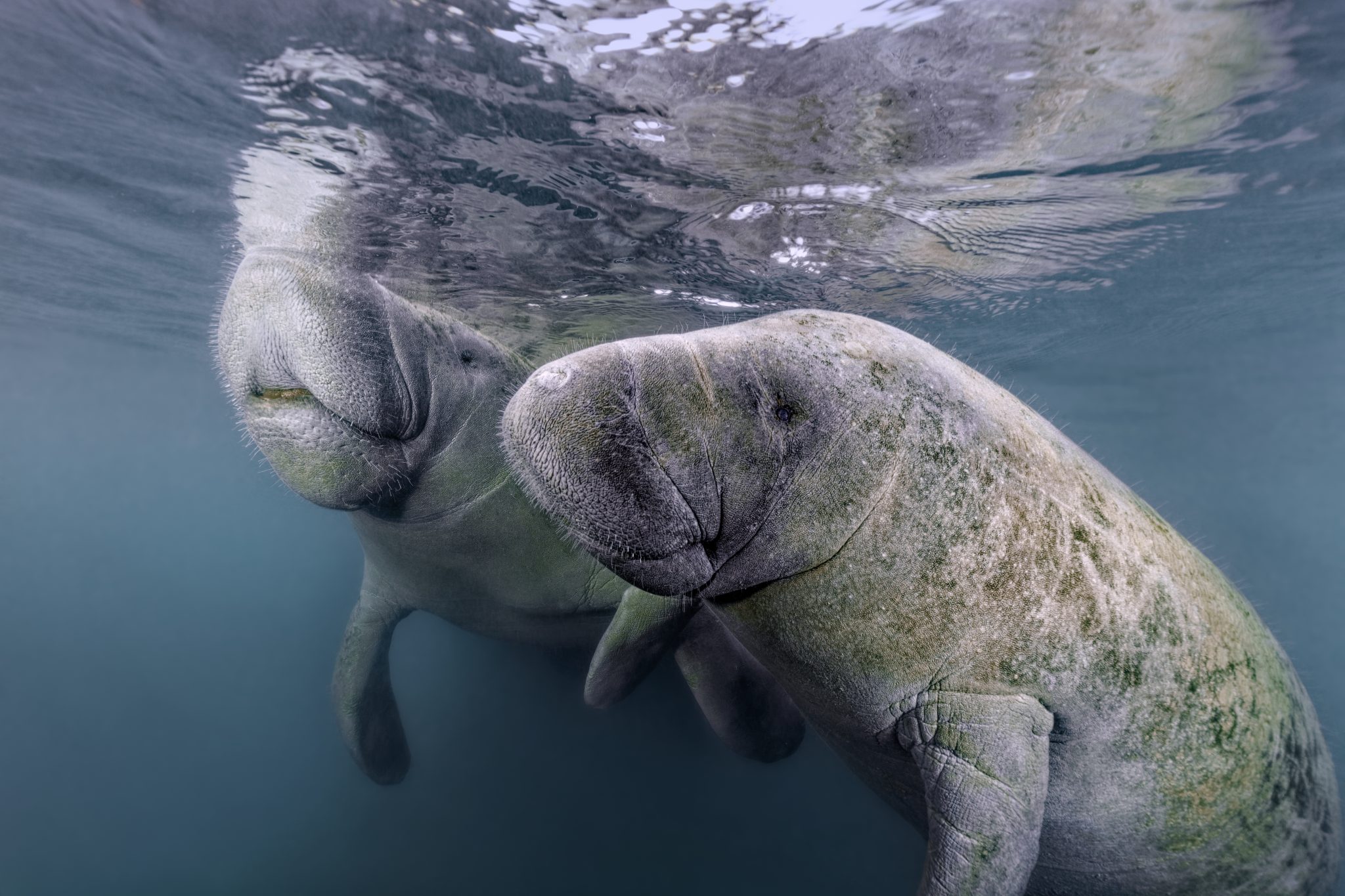
As National Safe Boating Week approaches, Save the Manatee® Club is urging boaters, and anyone that enjoys Florida’s waterways, to respect and protect the defenseless manatees that inhabit our shared waterways. From May 18 to 24, leading up to Memorial Day Weekend, the campaign aims to raise awareness about recreational boating safety and the importance of safeguarding imperiled manatees during the summer boating season. This week also emphasizes the importance of encouraging boaters to enroll in a boating safety course.
Manatees are semi-migratory marine mammals that are commonly found in shallow estuaries, bays, rivers, canals, and coastal areas throughout Florida and neighboring states. With some manatees venturing as far west as Texas and as far north as Massachusetts, collisions between these gentle giants and watercraft have become distressingly frequent. Boat propellers and high-speed collisions pose significant threats to manatees, often resulting in severe injuries or even death.
Save the Manatee Club is calling on all water enthusiasts to follow essential manatee safety tips to ensure the well-being of the imperiled manatee:
- Obey Speed Zone Signs: Familiarize yourself with and adhere to posted speed limits to prevent collisions with manatees.
- Reduce Glare with Polarized Sunglasses: Wear polarized sunglasses to enhance visibility and spot manatees below the water’s surface.
- Recognize Manatee Signs: Learn to identify signs of manatees in the area, such as swirls or flat spots on the water caused by their movements.
- Respect Manatee Sanctuaries: Keep a safe distance from posted manatee sanctuaries and avoid pursuing or harassing these marine mammals, as it is illegal and can disrupt their natural behaviors.
- Report Distressed Manatees: In Florida, promptly report distressed, injured, tagged, or orphaned manatees to the Florida Fish and Wildlife Conservation Commission (FWC) at 1-888-404-FWCC (3922). Outside of Florida, report sightings to the appropriate state agency or rescue organization. A list of agencies to contact is available at savethemanatee.org/report.
- Protect Seagrass Beds: Avoid boating over seagrass beds and shallow areas where manatees may be feeding. Stick to deep water channels while remaining vigilant, as manatees also utilize these channels during their travels.
- Dispose of Fishing Line Responsibly: Anglers should properly dispose of or recycle used fishing line to prevent entanglement hazards for manatees.
“Each year, National Safe Boating Week provides an excellent reminder for all of us to be aware that we share our waterways with vulnerable manatees,” emphasized Patrick Rose, Aquatic Biologist and Executive Director of Save the Manatee Club. “With the recent Unusual Mortality Event on Florida’s East Coast claiming an alarming number of manatees’ lives, it is more crucial than ever to prevent preventable deaths caused by watercraft collisions. By following manatee-safe boating guidelines, such as obeying speed zones and remaining vigilant for manatees, everyone on the water can contribute to the protection of these gentle giants.”
Save the Manatee Club offers a range of free materials to help safeguard manatees and raise awareness about manatee-safe boating practices. Shoreline property owners and park or marina managers can order aluminum dock signs to alert others about the presence of manatees in their areas. Boaters and paddlers can request packets containing a safety tips card, a waterproof boat banner, and a decal to display on their vessels, providing the number to report manatees in distress. To view and request these materials, visit savethemanatee.org/resources. Save the Manatee Club will also be hosting a live webinar for National Safe Boating Week on Tuesday, May 21st at 6pm EST. To register, visit savethemanatee.org/register.
Blogs
The Ocean Cleanup Breaks 10,000,000 KG Barrier

The Ocean Cleanup, the global non-profit project, has removed a verified all-time total of ten million kilograms (22 million lbs.) of trash from oceans and rivers around the world – approximately the same weight as the Eiffel Tower.
To complete its mission of ridding the oceans of plastic, The Ocean Cleanup uses a dual strategy: cleaning up the Great Pacific Garbage Patch (GPGP) to remove the plastic already afloat in the oceans, while stopping the flow of plastic from the world’s most polluting rivers.
Through cleaning operations in the GPGP and in rivers in eight countries, the cumulative total of trash removed has now surpassed ten million kilograms. This milestone demonstrates the acceleration of The Ocean Cleanup’s impact, while underlining the astonishing scale of the plastic pollution problem and the need for continued support and action.
While encouraging for the mission, this milestone is only a staging point: millions more tons of plastic still pollute our oceans and The Ocean Cleanup intends to continue learning, improving and innovating to solve this global catastrophe.
This announcement comes as governments from around the world meet to continue negotiations to develop a new legally binding instrument to end plastic pollution at INC4 in Ottawa, Canada. Representatives of The Ocean Cleanup will be in attendance and the organization will be urging decision-makers to collaborate towards a comprehensive and ambitious global treaty which addresses plastic at all stages of its life cycle and in all marine environments worldwide, including in areas beyond national jurisdiction.
It is encouraging to see that the need for remediation is reflected in the various options for potential treaty provisions. It is essential that the final treaty contains clear targets for the remediation of legacy plastic pollution, and reduction of riverine plastic emissions.
Tackling plastic pollution requires innovative and impactful solutions. The treaty should therefore incentivize the innovation ecosystem by fostering innovations that make maximal use of data, technology and scientific knowledge – such as those designed and deployed by The Ocean Cleanup.
‘After many tough years of trial and error, it’s amazing to see our work is starting to pay off – and I am proud of the team who has brought us to this point.’ said Boyan Slat, Founder and CEO of The Ocean Cleanup. ‘While we still have a long way to go, our recent successes fill us with renewed confidence that the oceans can be cleaned.’
The Ocean Cleanup was founded in 2013 and captured its first plastic in 2019, with the first confirmed catch in the GPGP coming soon after the deployment of Interceptor 001 in Jakarta, Indonesia. After surpassing one million kilograms of trash removed in early 2022, the non-profit project has since progressed to the third iteration of its GPGP cleaning solution, known as System 03, and a network of Interceptors currently covering rivers in eight countries, with more deployments set for 2024.
About The Ocean Cleanup
The Ocean Cleanup is an international non-profit organization that develops and scales technologies to rid the world’s oceans of plastic. They aim to achieve this goal through a dual strategy: stemming the inflow via rivers and cleaning up the legacy plastic that has already accumulated in the ocean. For the latter, The Ocean Cleanup develops large-scale systems to efficiently concentrate the plastic for periodic removal. This plastic is tracked and traced through DNV’s chain of custody model to certify claims of origin when recycling it into new products. To curb the tide via rivers, The Ocean Cleanup has developed Interceptor™ solutions to halt and extract riverine plastic before it reaches the ocean. Founded in 2013 by Boyan Slat, The Ocean Cleanup now employs a broadly multi-disciplined team of approximately 140. The foundation is headquartered in Rotterdam, the Netherlands.
For more information, visit: theoceancleanup.com and follow @theoceancleanup on social media.
-

 Gear Reviews1 month ago
Gear Reviews1 month agoGEAR REVIEW – Revolutionising Diving Comfort: The Sharkskin T2 Chillproof Suit
-

 Blogs2 months ago
Blogs2 months agoMurex Resorts: Passport to Paradise!
-

 Blogs3 weeks ago
Blogs3 weeks agoDive Indonesia Part 3: Dive into Lembeh Trip Report
-

 Blogs3 months ago
Blogs3 months agoDiver Discovering Whale Skeletons Beneath Ice Judged World’s Best Underwater Photograph
-

 News3 months ago
News3 months agoPADI Teams Up with Wellness Brand Neuro to Drive Ocean Change and Create a Blue State of Mind
-

 Marine Life & Conservation3 months ago
Marine Life & Conservation3 months agoSave the Manatee Club launches brand new webcams at Silver Springs State Park, Florida
-
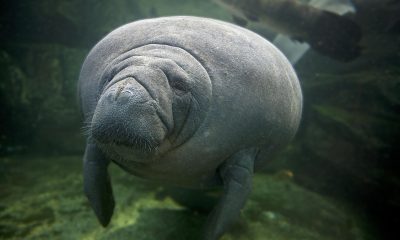
 Blogs2 months ago
Blogs2 months agoSeagrass Awareness Month brings critical food source for Manatees to centre stage
-
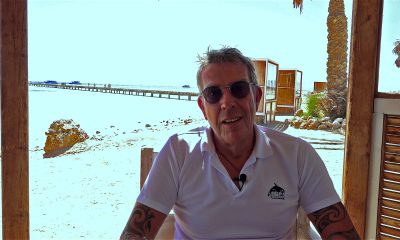
 Blogs2 months ago
Blogs2 months agoSOMABAY: Scubaverse interviews Wolfgang Clausen, General Manager, ORCA Dive Clubs



